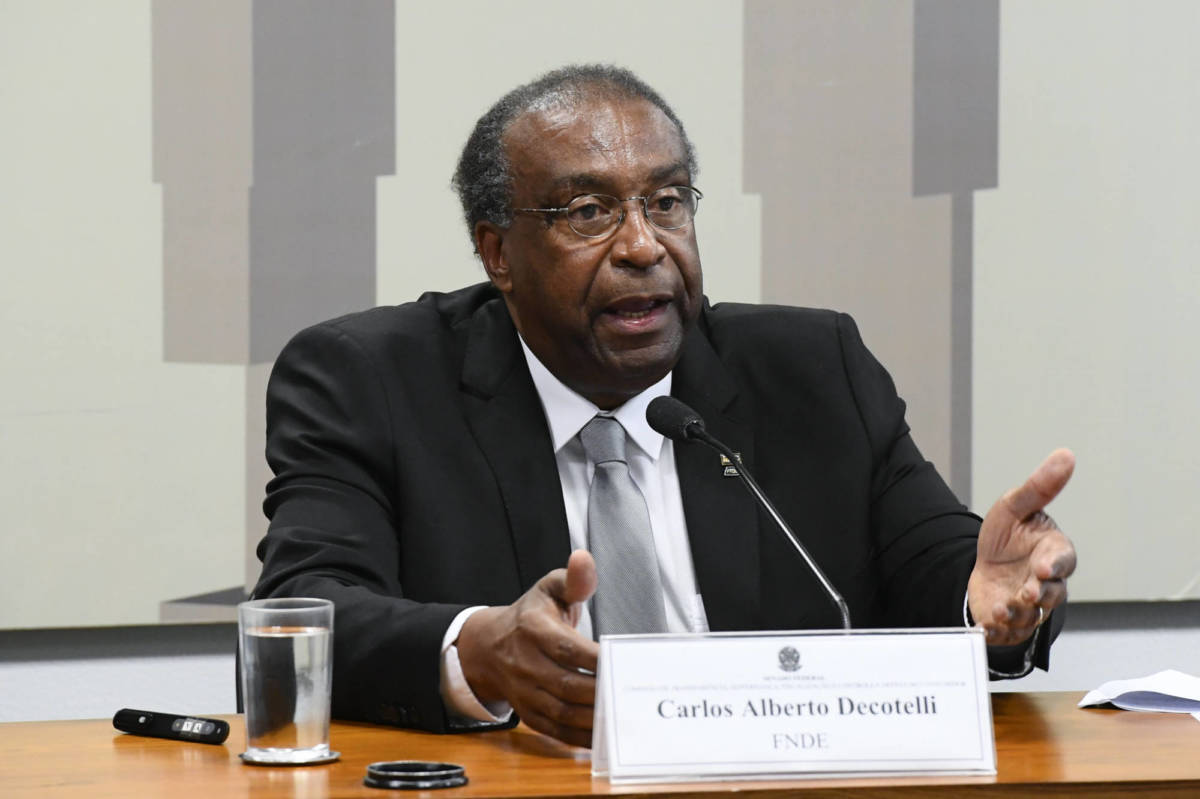RIO DE JANEIRO, BRAZIL – The new Minister of Education, Carlos Alberto Decotelli, was not awarded a post-doctoral certificate by the University of Wüppertal in western Germany, as released last Friday, June 26th, by the Ministry of Education (MEC).

In a note, the German institution clarified that the Minister conducted research at the university for a period of three months in 2016, but did not complete any post-doctoral program, which in Germany spans between two and four years.
“Carlos Decotelli was not awarded a degree at our university,” said Jasmine Ait-Djoudi, head of communication at Bergische Universität Wüppertal (BUW). The German university offers some 110 courses in diverse fields and has over 22,000 students.
In his résumé available on the National Council for Scientific and Technological Development (CNPq) Lattes platform, Decotelli reports that he attended the German university between 2015 and 2017 and was awarded a post-doctoral certificate.
The Minister corrected his résumé after the dean of the University of Rosario, Argentina, confirmed that he does not hold a doctoral degree in the institution, despite having studied there. However, the postdoctoral degree in Germany is still on the platform. In order to complete a postdoctoral degree, an academic is required to have completed a doctorate.
In Wüppertal, the new Minister of Education conducted research for three months under the guidance of Brigitte Wolf, who was professor of Design Theory at the university until 2017. Wolf confirmed that the Minister was not awarded any university title in Germany.
A post-doctoral degree is not a formal academic title but is a term used in reference to research conducted after an academic has obtained a doctoral degree.
On her professional website, the professor published an interview with Decotelli about the Minister’s brief academic experience in Germany. “Companies are heavily involved in research in Germany. The results are better disclosed and reported,” the Minister said in January 2016.
“In Brazil, research is conducted on behalf of institutions and public bodies, budgets are subject to political instructions and research results remain in the academic environment,” he added.
In Germany, a post-doctorate takes on average two to four years and can only be completed by candidates with a doctoral degree – which is not the new Minister’s case. In the European country, lying on a résumé can lead to a prison sentence of up to five years for document forgery, if the résumé bears the candidate’s signature.
In a note published last Saturday, the MEC said that “the German university accepted to endorse the project, considering the topic’s relevance, the conclusion and approval of all credits obtained in the Doctorate in Business Administration course at the University of Rosario,” stressing that the Minister was not awarded any title resulting from this research.
Regarding the doctorate in Argentina, the MEC reported that “at the end of the course, (Decotelli) submitted a doctoral thesis which, after preliminary evaluation by the designated panel of judges, was not authorized. Decotelli then returned to Brazil, without completing his doctorate at the university.
A series of curriculum inaccuracies
This is not the first inaccurate information in the résumé of ex-Minister of Education Abraham Weintraub’s successor. Last Friday, Franco Bartolacci, dean of the National University of Rosario (Argentina), reported that Decotelli was not awarded a doctorate in Business Administration from the School of Economics and Statistics and confirmed that his doctoral thesis was rejected.
Following the news, the Minister changed the information on the résumé on the Lattes platform, excluding the title of the thesis – “Risk Management in Soy Pricing Modeling” – and the name of the advisor. In response to the press release by the Argentinean dean, the MEC released a certificate attesting that Decotelli concluded “all the doctoral credits”, but the portfolio made no reference to obtaining the doctoral degree.
The title of master of the new Minister of Education also raises suspicions. The Getúlio Vargas Foundation (FGV) is investigating potential plagiarism in Decotelli’s master’s degree dissertation; he attended FGV between 2006 and 2008, studying Professional Administration.
On Twitter, university professor Thomas Conti, of the Teaching and Research Institute (INSPER ), wrote that Decotelli’s dissertation reproduces, without citations and bibliographical references, whole passages from a Banrisul report at the Securities Commission (CVM).
In a note, the Ministry of Education reported that Decotelli would review the work “out of respect for the intellectual rights of the authors and researchers cited”. “The minister refuted the allegations of malice, reported that the work was approved by the educational institution and sought to credit all researchers and authors who served as reference,” the MEC said in the statement. “If he committed any omissions, these were due to technical or methodological shortcomings,” said the Minister.
Decotelli was president of the National Education Development Fund (FNDE) in 2019 and, before taking over the MEC, he was a professor at the Getúlio Vargas Foundation (FGV)’s post-graduate program in economics and finance. The Minister’s profile on LinkedIn has also been removed.
Source: O Globo

